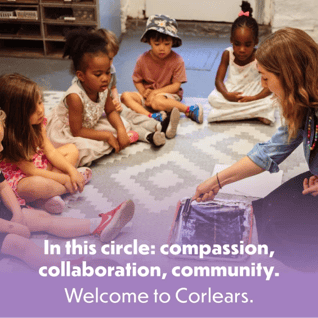As a parent in New York City, choosing a daycare setting or school program for your infant, toddler, or young child can be a daunting task. With so many choices available, it's normal to feel overwhelmed. Factors such as socioeconomic considerations and hours of care may also play a role in your decision-making process.
However, you can also feel reassured and confident that given the amount of choices, you are sure to find a setting aligned with your family's values, norms, and ideals. When exploring programs for young children, it's important to consider the philosophical approach and educational framework; where school programs are designed with long-term curriculum and school readiness in mind, daycare settings tend to focus on primary caregiving and meeting the daily needs of the child.
By examining the differences and distinctions between daycare and school, you can make an informed decision about the best setting for your child as well as their future growth, learning, and achievement.
What Is a Daycare?
Daycare and family care settings provide safety, security, connection, engagement, and some degree of educational experiences. Children of various ages, generally infants through 4 years old, can be in multi-age groups, adhering to a predetermined child-to-caregiver ratio.
In daycares, "family care" is often prominent. In corporate, public, and private daycares, this same curriculum is observable and publicized. They also advocate for "project-based and socially supportive multi-age caregiving" in alignment with licensing agencies' standards of care and supervision.
Educational experiences in daycare settings are primarily based on unstructured "free play time" with a focus on project-based and social integrative play. These settings often offer longer hours, including early drop-offs, extended hours, and holiday or vacation break care.
What Happens at Nursery School?
In educational settings, such as a school, children are enrolled in classes based on their developmental and chronological age, and multi- or mixed-age groups are not common except for special occasions and inter-classroom visits, projects, or planned events.
Schools often offer educational programming for toddlers, nursery-age (2s and 3s), PreK (4s), and sometimes beyond through to middle or twelfth grade, depending on the school, location, and affiliation. The focus of a school setting is to merge developmentally appropriate practices with a focus on school readiness, preparing children for their educational trajectory. These settings have a structured schedule that reflects age-appropriate learning experiences rooted in early learning guidelines, state educational standards, and core knowledge applications. Teachers in schools are often credentialed, experienced, and specialize in a specific subject or developmental stage.
School programs for toddlers through PreK emphasize the importance of pre-academic skills through experiential and explicit instruction. Different methodologies of approach may be visible, such as Reggio-inspired (which is the model Corlears School follows), Montessori, or Waldorf.
How to Decide Between Daycare and Nursery School
When making an educated decision, it's important to consider the quality of interactions, the history and culture of the school, the learning experiences and curriculum, and whether the experiences support a child's emotional, social, cultural, cognitive, physical, sensory, and language development.
Depending on what is important to your family, and in addition to hours and cost, you may consider the following criteria when you visit a school or daycare program:
- Consider how materials are presented, organized, and utilized.
- Look for language that supports, expands, and encourages conversation, responsiveness, and acknowledgment of emotions.
- Pay attention to whether children are encouraged to engage in physical play, musical expressions, and sensory, messy play that reinforces healthy brain and body development.
- Child-to-teacher ratio.
- Operational and programmatic policies related to toilet readiness, food and nutrition, rest and naptime, outdoor time, lesson planning, and the opportunity to engage in parent-teacher conferences, curriculum events, and community engagements.
- Different licensing regulations, mandates, and background checks.
The Takeaway
As you consider what will provide a strong foundation and a successful academic journey for your child, we encourage a holistic approach. Nourish their mind, body, and spirit, and embrace the joy and wonder of early childhood. Seek out engagement, connection, and purposeful pedagogy that will inspire, delight, and support your child's growth, learning, and achievement during their most impressionable and important years.
Post last updated: December 15, 2025



